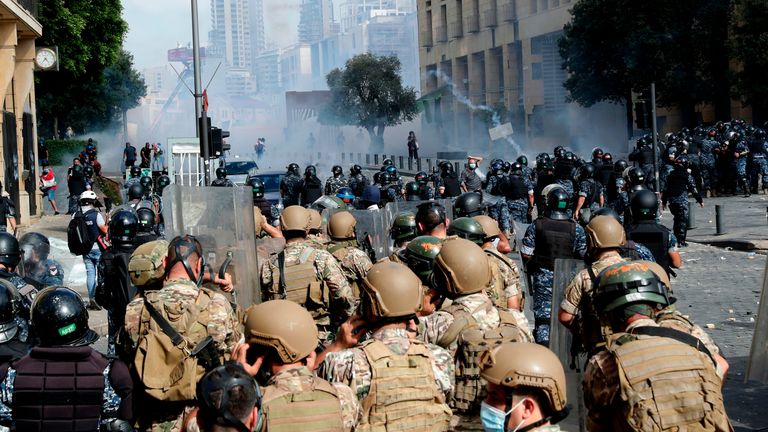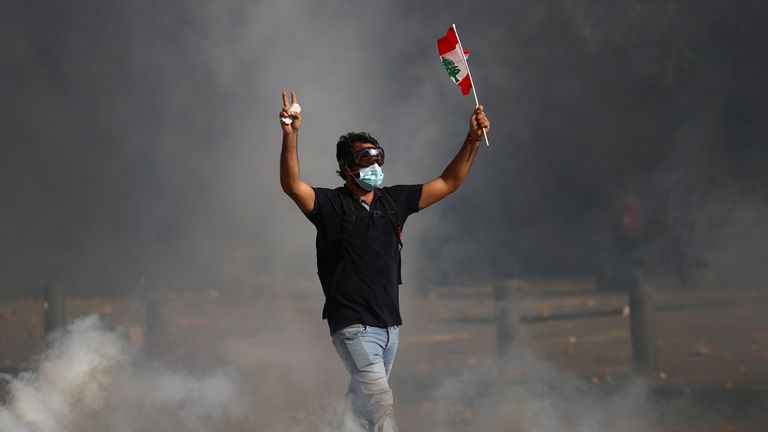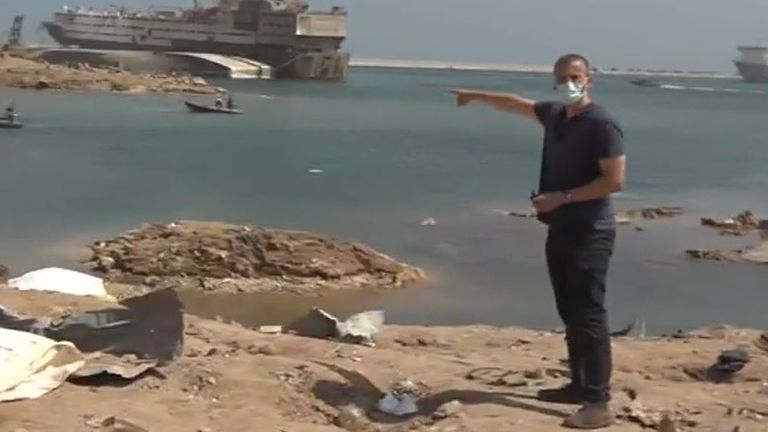Tear gas has been fired in Beirut as people protesting against the government’s handling of this week’s explosion tried to reach the parliament building.
Riot police took action as about 5,000 people gathered in the central Martyrs’ Square and attempted to break through a barrier.
More than 100 were injured and 32 taken to hospital, according to the Lebanese Red Cross.
A police spokesman said an officer had died in the clashes.
“The people want the fall of the regime,” protesters chanted, adding: “Leave, you are all killers.”
Dozens later entered the foreign ministry, the Reuters news agency reported.
Makeshift gallows and nooses have been set up.
Sky News correspondent Alex Rossi, who is there, said residents have been “enormously angry” since the explosion happened, adding: “People here want to – metaphorically at least – hang their political class.”
After the protests had begun, Prime Minister Hassan Diab said the only way out of the crisis is via early parliamentary elections.
Student Celine Dibo, speaking as she scrubbed blood off the walls of her shattered apartment block, said there was “no trust” in the government, adding: “I wish the United Nations would take over Lebanon.”
Rossi said there was a “huge amount of structural damage to the buildings” in Martyrs’ Square and hardly any windows have glass in them.
Psychologist Maryse Hayek said the Lebanese people are “living in ground zero”.
“I hope another country would just take us over. Our leaders are a bunch of corrupt people,” he said.
One of the demonstrators, Rose Sirour, said: “We want a future with dignity – we don’t want the blood of the victims of the explosion wasted.”
The number of dead has risen to 158, the Lebanese health ministry said. At least 6,000 have been injured, while 21 people remain missing.
The Kataeb Party, a Christian group that opposes the current Hezbollah-backed government, said on Saturday that its three members of parliament were standing down.
“I invite all honourable (members) to resign so that the people can decide who will govern them, without anybody imposing anything on them,” said leader Samy Gemayel.
Earlier, Lebanon’s president revealed he knew about the huge stockpile of explosives at Beirut’s port almost three weeks before they blew up.
The ammonium nitrate had been there since 2013 after being confiscated from an impounded cargo ship.
Michel Aoun was told about the 2,750 tonnes of material on 20 July, and claims he subsequently ordered officials to “do what is needed”.
But he said he had “no authority to deal directly with the port” and did not know “where it was placed”.
Documents show Lebanese authorities in customs, the military, security and the judiciary raised the alarm 10 times in the seven years the explosives were there.
Investigators have ordered the detention of the head of the port, Hassan Koraytem, the country’s customs chief, Badri Daher, and his predecessor.
British Prime Minister Boris Johnson has told Mr Aoun that the UK will “stand by the country in its hour of need”.





